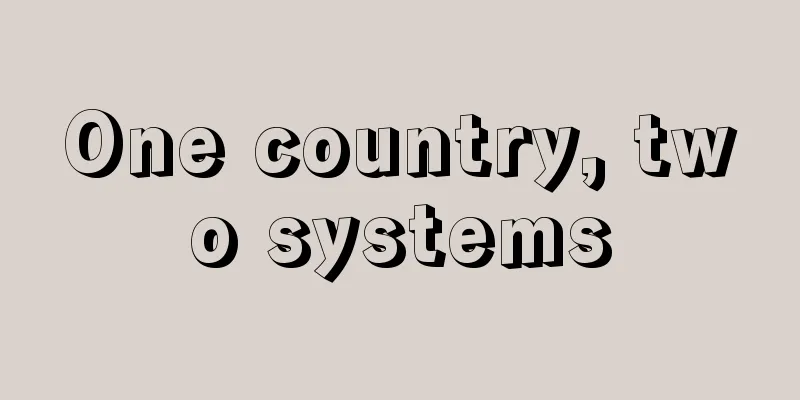Stalin (English spelling) Iosif Vissarionovich Stalin

|
Dzhugashvili, born on December 21, was the son of a shoemaker in the town of Gori, Georgia. He was baptized into Marxism while studying at a seminary in Tiflis (now Tbilisi, Georgia) and became a professional revolutionary. He was a member of the Bolshevik faction of the Russian Social Democratic Party, and was involved in underground activities in Tiflis, Baku, and other places, while repeatedly being arrested, exiled, and escaping. When the Bolshevik Party was formed under the leadership of Lenin at the Prague Conference in 1912, he became a central committee member and participated in the publication of its organ newspaper, Pravda. The following year, in 1913, at Lenin's urging, he wrote Marxism and the National Question. Around that time, he began to use the pseudonym Stalin (Man of Steel), but he was soon arrested and exiled to Siberia. He was liberated by the February Revolution of 1917, and returned to Petrograd (later Leningrad, now St. Petersburg) and rejoined the editorial staff of Pravda. At first, he led the party with Kamenev, taking a compromising stance toward the Provisional Government, but after Lenin's return in April of the same year, he followed Lenin. During the October Revolution, he supported Lenin's theory of immediate uprising. Although he was not as prominent as Trotsky, who had just joined the party at the August party congress, he was given the post of People's Commissar for Nationalities in the Soviet government headed by Lenin. During the civil war that followed the revolution, he was active as a political organizer in the defense of Tsaritsyn (later Stalingrad, now Volgograd), the defense of Petrograd, and the attack on Denikin's army. At the 10th Party Congress in March 1921, when the civil war ended, he was one of the five members of the Politburo, along with Lenin, Kamenev, Zinoviev, and Trotsky. However, the following year, in 1922, he was appointed General Secretary of the party, giving him the ability to wield enormous power within the party through the allocation of personnel. Such a concentration of power deeply concerned Lenin on his deathbed. Having noted Stalin's brutality in handling the ethnic problem in Georgia, Lenin was concerned about the qualities of Stalin's successor as leader, and in his will, "Letter to the Congress," he stated the need to replace the General Secretary. However, Stalin's political career was saved by Lenin's worsening illness, and when Lenin died in January 1924, Stalin impressed both inside and outside the party that he was his most faithful disciple at Lenin's funeral. The recommendations in his will were not made public. He remained in his position as General Secretary at the 13th Party Congress in May of the same year. He created the so-called Triumvirate with Kamenev and Zinoviev within the party, and attempted to undermine Trotsky's authority, dismissing him from his post as People's Commissar of Military Affairs in 1925. In theory, in a series of writings after Lenin's death, he shifted from the view that socialism in one country was impossible to the view that it was possible, and criticized Trotsky's theory of permanent revolution. When a split occurred in the Triumvirate, he joined forces with Bukharin to oppose the United Opposition. In 1927, he expelled Trotsky, Zinoviev, and others from the party. After that, he fought against the right-wing opposition, including Bukharin and Rykov, along with Molotov and others. In this way, Stalin ousted opposition party leaders one by one, and in the 1930s, he established an authoritarian political system in which he took sole control of the party and government. Rapid industrialization and full-scale collectivization of agriculture, which began in the late 1920s, were forced through under this authoritarian rule. Furthermore, the assassination of Kirov in 1934 marked the start of the "Great Purges." These purges targeted not only former opposition leaders, but also veteran Bolsheviks, military leaders, ordinary party members, and ordinary citizens. During this time, the so-called "Stalin Constitution" was enacted in 1936. In external affairs, the Soviet Union sought to secure security through cooperation with Western democracies, but when this failed, it concluded a non-aggression pact with Nazi Germany in 1939. In the German-Soviet War of 1941-1945, the Soviet Union suffered a major defeat in the early stages. This was largely due to Stalin's optimistic predictions about the prospects for a German attack on the Soviet Union. However, by appealing to the patriotism of the people, the Soviet Union succeeded in fighting back. In addition to serving as General Secretary from 1922 and Chairman of the Council of People's Commissars just before the outbreak of war, he also served as Chairman of the State Defense Committee and Supreme Commander of the Soviet Army. In 1943 he was made a marshal, and in 1945 he was made a generalissimo. Throughout the war, he concentrated power in his own person in both name and reality, and rallied the people under his authority to lead them to victory. At the same time, he worked with the leaders of the Allied Powers to promote post-war diplomacy and create the framework for the post-war world order. After the war, he used his authority to force austerity policies on the people, but he died of a cerebral hemorrhage on March 5, 1953. [Hara Teruyuki] "The Complete Works of Stalin, 13 volumes, translated by the Stalin Collected Works Publishing Committee (1952, Otsuki Shoten)" ▽ "Stalin, 2 volumes, by Deutscher, translated by Uehara Kazuo (1963, Misuzu Shobo)" ▽ "Stalin, 3 volumes, by Trotsky, translated by Muto Kazuyo and Sano Kenji (1967, Godo Shuppan)" ▽ "Stalin: A Critical Biography, by Agosti, translated by Sakai Nobuyoshi (1985, Otsuki Shoten)" [References] | | | | | | | |Source: Shogakukan Encyclopedia Nipponica About Encyclopedia Nipponica Information | Legend |
|
本名ジュガシビリДжугашвили/Dzhugashvili。ソ連の政治家。12月21日ジョージア(グルジア)のゴリという町の靴屋の子に生まれる。チフリス(現、ジョージア・トビリシ市)の神学校在学中にマルクス主義の洗礼を受け、職業革命家の道に入った。ロシア社会民主党のボリシェビキ派に属し、逮捕と流刑、脱走を繰り返しながら、チフリス、バクーなどで地下活動に従事した。1912年のプラハ協議会でレーニンの指導下にボリシェビキ党が結成されると、その中央委員になり、機関紙『プラウダ』の刊行に参加した。翌1913年レーニンの勧めで『マルクス主義と民族問題』を著した。そのころからスターリン(鋼鉄の人)の変名を用いるようになったが、まもなく逮捕されてシベリアに流刑。1917年の二月革命で解放され、ペトログラード(のちのレニングラード、現在のサンクト・ペテルブルグ)に帰って『プラウダ』編集部に復帰した。初めカーメネフとともに臨時政府に妥協的な方針で党を指導したが、同年4月のレーニン帰国後はレーニンに従った。十月革命に際してはレーニンの即時蜂起(ほうき)論を支持して活動した。ただし8月の党大会で入党したばかりのトロツキーに比べて目だつ存在ではなかったが、レーニンを首班とするソビエト政権に民族人民委員のポストを得た。革命に続く内戦期には、ツァリーツィン(のちのスターリングラード、現在のボルゴグラード)防衛戦、ペトログラード防衛戦、デニキン軍攻略戦などで政治的組織者として活動した。内戦が終結した1921年3月の第10回党大会の段階で、レーニン、カーメネフ、ジノビエフ、トロツキーとともに5人の政治局員の一人。しかし翌1922年に党の書記長を兼ねることにより、要員の配置を通じて党内の絶大な実権を手中にしうる地位についた。そのような権力の集中は病床のレーニンの深く憂慮するところとなった。ジョージアの民族問題の処理にみせたスターリンの粗暴さを重視したレーニンは、その後継指導者としての資質に懸念を抱き、遺言となった「大会への手紙」のなかで書記長の更迭の必要性を述べた。 しかしレーニンの病状悪化によってスターリンの政治生命は救われ、レーニンが1924年1月に死去すると、その葬儀において自分こそがもっとも忠実な弟子たることを党の内外に印象づけた。遺書に述べられた勧告は非公表とされた。同年5月の第13回党大会で書記長に留任。党内にカーメネフ、ジノビエフとともにいわゆる三頭連盟体制をつくってトロツキーの権威失墜を図り、1925年に彼を軍事人民委員のポストから解任した。理論的にはレーニン死後の一連の著作のなかで一国社会主義不可能論から可能論に転換し、トロツキーの永続革命論に論難を加えた。やがて三頭連盟体制に分裂が生じると、ブハーリンと組んで合同反対派と対抗した。1927年にはトロツキー、ジノビエフらを党から除名した。その後はモロトフらとともにブハーリン、ルイコフらの右翼反対派と抗争。こうしてスターリンは反対派党幹部を次々に失脚させ、1930年代に入ると、党と政府を一身に掌握する独裁的政治体制を築いた。1920年代末から始まった急速な工業化と農業の全面集団化はこの強権のもとで強行された。さらに1934年のキーロフ暗殺事件を契機に「大粛清」を開始。その対象は旧反対派幹部だけでなく、古参ボリシェビキ、軍首脳部から一般党員、一般市民にまで向けられた。この間、1936年にいわゆる「スターリン憲法」が制定された。 対外面では西欧民主主義諸国との協調による安全保障の道も追求されたが、これが失敗に終わると1939年にナチス・ドイツとの間に不可侵条約を結んだ。1941~1945年の独ソ戦では緒戦で大敗北を喫した。これはドイツの対ソ攻撃の見通しについてのスターリンの楽観的予測に起因するところが大きい。しかし国民の愛国心に訴えて反撃に成功。1922年以後の書記長、開戦の直前に就任した人民委員会議議長に加え、国防委員会議長、ソ連軍最高総司令官を兼務し、1943年には元帥、1945年には大元帥となり、戦争を通じて名実ともに権力を一身に集中し、その権威のもとに国民を結集して戦勝に導く一方、連合国首脳とともに戦後処理外交を推進、戦後世界秩序の枠組みをつくった。戦後その権威により引締め政策を国民に強いたが、1953年3月5日脳出血で死去した。 [原 暉之] 『スターリン全集刊行会訳『スターリン全集』全13巻(1952・大月書店)』▽『ドイッチャー著、上原和男訳『スターリン』全2巻(1963・みすず書房)』▽『トロツキー著、武藤一羊・佐野健治訳『スターリン』全3巻(1967・合同出版)』▽『アゴスティ著、坂井信義訳『評伝スターリン』(1985・大月書店)』 [参照項目] | | | | | | | |出典 小学館 日本大百科全書(ニッポニカ)日本大百科全書(ニッポニカ)について 情報 | 凡例 |
>>: Stara Planina (mountain range)
Recommend
Truman, DB (English name) TrumanDB
...On the other hand, as the 20th century began a...
Confucius Temple
A temple dedicated to Confucius. It is also calle...
stoa
...the passageway connecting the river temple and...
Imperial temple - Chokuganji
A temple built at the request of the emperor to p...
Picture root - Eirinehon
[noun] A kabuki script with woodblock prints and i...
Terek sand‐piper
A bird of the family Scolopacidae in the order Cha...
Lilium leichtlinii (English spelling) Liliumleichtlinii
…[Tetsuichi Yahara]. … *Some of the terminology t...
Yaku [town] - Yaku
This old town occupies the southern half of Yakush...
Kerosene - Touyu (English spelling)
A fraction between naphtha and diesel produced by...
Multscher, H.
...The court style that flowed in from Paris and ...
Iide [town] - Iide
A town in Nishiokitama County in the southwest of ...
The gläserne Kette (English spelling)
… In this way, expressionist art around the time ...
Cuoco - Vincenzo Cuoco
1770‐1823 Neapolitan historian and politician. He ...
Schmidt
... RCONH 2 +Br 2 +OH - - →RNH 2 (3)-(b) Curtius ...
Onassis, Jacqueline Kennedy
Born: July 28, 1929, Southampton, New York [Died] ...









